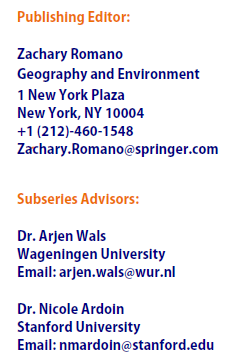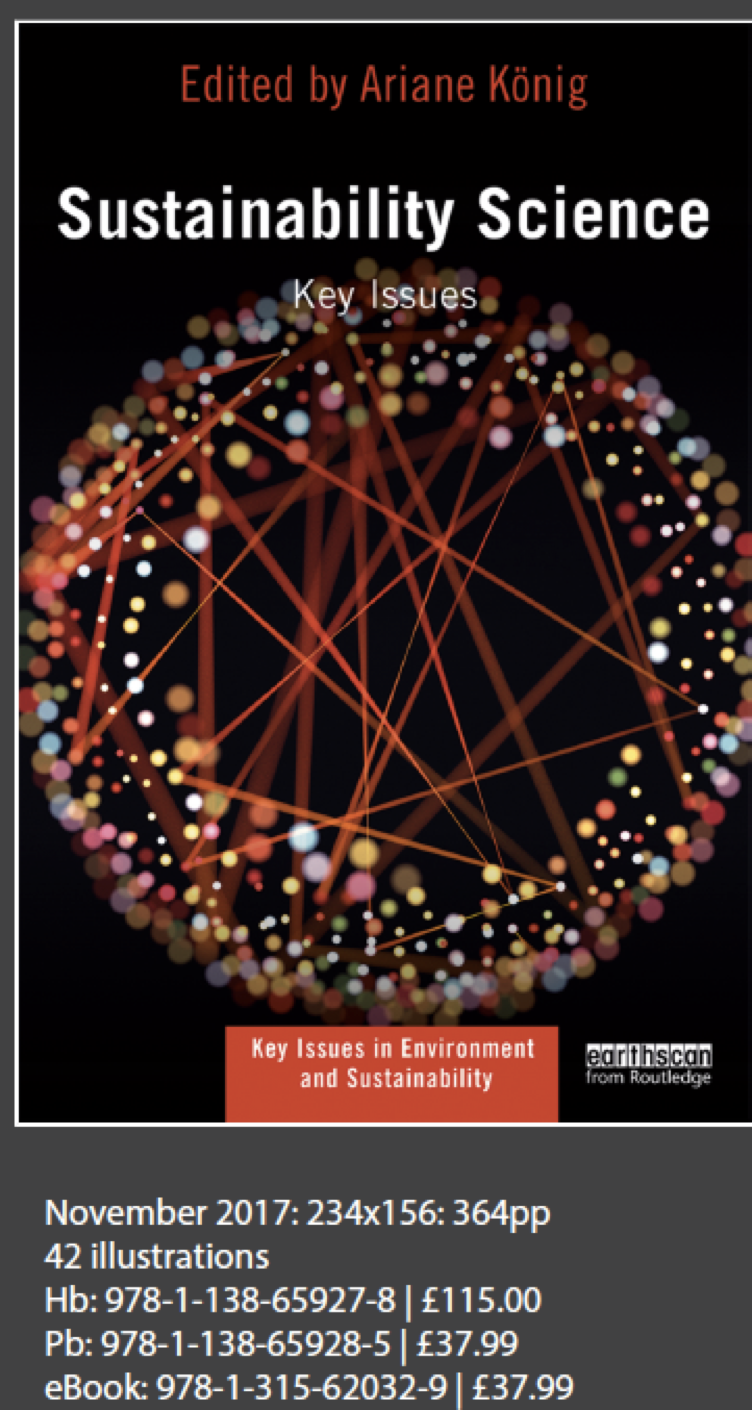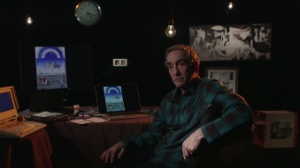
Front page of Science Article[/caption]
In May of 2014 ‘Science’ published a paper on the importance of creating synergies between science education and environmental education with the support of Citizen Science. The article, which I co-authored with Justin Dillon, Bob Stevenson and Michael Brody, is based on the trends emerging from the International Handbook of Environmental Education Research (Stevenson et al, 2013)*. The article is available through most university library systems in the world and can be obtained for personal use by clicking: ScienceWalsetall2014.
There are a number of lessons to be drawn from the article but essentially we emphasize the importance of: Connecting biophilia and videophilia: that is, study ways in which ever-present technologies and cyberspaces can be used to help people (re)gain a deeper and more empathetic contact with each other and with the world (presently these technologies and spaces tend to lead to the exact opposite). Creating spaces for hybrid learning: that is, hybridized environments and new spaces are needed for learning about the sustainability challenges of our time (e.g. climate change, malnutrition, loss of food security and biodiversity) that embraces the authenticity of multiple voices and cultural and theoretical perspectives, new forms of representation, and more change-oriented and community-based approaches. Strengthening community-engaged scholarship with a planetary conscience: that is, with the increasing complexity of societies, the interdisciplinary nature of people-society-environment relationships, the problems faced at local and global scale, and the uncertainty of their solutions or resolutions, there is a need for new spaces for collaborative and transformative approaches to research. Supporting emerging forms of ICT-supported Citizen Science: that is, the active involvement of citizens, young and old, in the monitoring of local socio-ecological issues by collecting real data and sharing those data with others doing the same elsewhere through social media and on-line platforms, as a catalyst for realizing the first three points. Furthermore we suggest that future research address: • the importance of acknowledging different ways of knowing into educational program(me)s; • the importance of place-based education; • the need for EE to focus on community-based activities that lead to • the individual and group empowerment; • the need to factor in issues of identity in EE; • the need for a convergence of science education and environmental education; • the need for EE to address issues of life-long learning • the need for practitioners and researchers to address policy issues; • the need for inter- and transdisciplinarity in EE practice and research. On a critical note, not so much stressed in the Science article but noted in the Handbook, we plea for stressing the importance of education serving people and planet rather than just serving the economy. The current push for innovation, competence, and a lifelong of learning for work and competitiveness, is resulting in the marginalization in education of people and by squeezing out place-based learning, arts, humanities and the development of values other than those driving consumerism and materialism. Wals, A.E.J., Brody, M., Dillon, J. and Stevenson, R.B. (2014) Convergence Between Science and Environmental Education, Science, 344, p. 583-584. * Stephenson, B., Brody, M., Dillon, J. and Wals, A.E.J. (Eds.) (2013) International Handbook of Environmental Education Research. London: Routledge. Below you will find today’s press release by Wageningen University & Research Centre.
Here’s the press release of Wageningen University, no. 045, 9 May 2014 “Addressing climate change, requires a change of mind”
Sustainability needs link between theory and practice in education How can you ensure that people do not only spend time thinking about important global issues like climate change or world food supplies, but also roll up their sleeves and do something about them? Four researchers, including Professor Arjen Wals from Wageningen University, think that the education sector holds the key. Teaching processes around the world could be given more influence and meaning by making pure science subjects, such as biology and physics, complementary to lessons in nature, environment and sustainability. Their article on this new approach to teaching, which is based on citizen science, is published in the 9 May edition of Science. Throughout the world, ‘pure’ science subjects such as physics, chemistry, biology, maths, geography and general natural sciences, which traditionally aim to build up knowledge and understanding, are seen separately from subjects such as nature and the environment, which together with the latest branch ‘sustainability education’ take a more practical approach. Although this certainly makes scholars aware of the current condition of our planet, their lack of practical perspective evokes a sense of powerlessness. For example, what can you do to prevent or respond adequately to forthcoming climate shifts? Affinity with politics, society and the economy are essential in this respect. Conversely, education in nature, the environment and sustainability (aka ‘environmental education’) does not equip scholars with the scientific insight they need to back up their proposed remedies. Convergence When taught separately, natural sciences and environmental education give a disjointed answer to society’s demand for a truly sustainable society. “It’s time these two schools converged,” says Arjen Wals, Professor of Social Learning and Sustainable Development at Wageningen University. “If we cannot create a firm link between these two educational areas, scientific education is in jeopardy of becoming purely a vehicle for enhancing the innovative and competitive potential of a country’s economy”, he says. “At the same time, without a firm link with the sciences, environmental education will never be able to find a responsible and realistic way of dealing with the contradictions and uncertainties that are raised in the scientific debate surrounding questions of sustainability.” The authors of the article in Science give a number of examples of environmental education, which cover the area where science meets society. Among them is the American concept of Edible School Gardens, whereby schoolchildren grow their own food in an educational garden while simultaneously learning about the things they grow in science lessons. The Dutch version is known as Groene schoolpleinen (‘green school grounds’). Another good example is YardMap, based on IT and citizen science. Citizens, both young and old, analyse biodiversity in their own neighbourhood by means of digital photos, special apps and Google Maps. The aim is to identify the areas with the greatest potential for boosting biodiversity. Action plans designed to ensure that the YardMaps are kept fully up-to-date are drawn up and implemented on the basis of studies and in consultation with scientists and local partners (including the municipal authority, garden centres and an NGO). The various YardMaps are linked via social media. The Dutch Natuurkalender works in much the same way. Creating closer ties between citizen science, scientific education and environmental education will help citizens and scientists to take a meaningful and practical approach to the pursuit of sustainability. Wals: “It’s not just about linking up the content; it involves developing new competencies such as dealing with complexity, uncertainty and confusion, and devising and implementing meaningful local solutions”. This method of learning may also help to restore the damage to public confidence in science. The government will have to put more effort into stimulating and supporting the ‘hybrid teaching environments’ that blur the boundaries between science and society, school and neighbourhood, local and global, and shift the emphasis to the wellbeing of mankind and the planet. Transition Calls for transition and another way of thinking are becoming more urgent, says Professor Wals: “At the end of the day, the climate problem is as much in between our ears, as it is between the North and South Poles”. He backs this up with a remarkable conclusion: to his mind, the role of education and citizen involvement has been seriously underemphasised in the climate debate. In fact he wonders if we will ever be able to bring about a transition without committed, critical and competent citizens, who aspire to values that are not purely based on the material side of their existence but also on care for fellow human beings and, indeed, other species, here and elsewhere, now and in the future. Join in the discussion on #CitizenScience Publication Wals, A.E.J., Brody, M., Dillon, J. and Stevenson, R.B. (2014) Convergence Between Science and Environmental Education, Science, 344, p. 583-584. NOTE FOR EDITORS More information is available from Prof. Arjen Wals, Professor of Social Learning and Sustainable Development and Director of the Centre for Sustainable Development & Food Security, Wageningen University, tel. +31 (0)317 484184, arjen.wals@wur.nl or via Jac Niessen, science information officer at Wageningen UR, tel.+31 (0)317 485003, jac.niessen@wur.nl.








 You can also read our latest academic paper related to this work in the Journal of Action Research in its recent special issue on action research and climate change here:
You can also read our latest academic paper related to this work in the Journal of Action Research in its recent special issue on action research and climate change here: 


 Sustainability Science Key Issues Edited by Ariane König (Université du Luxembourg, Luxembourg) and Jerome Ravetz (Oxford University, UK) is a comprehensive textbook for undergraduates and postgraduates from any disciplinary background studying the theory and practice of sustainability science. Each chapter takes a critical and reflective stance on a key issue of sustainability from contributors with diverse disciplinary perspectives such as economics, physics, agronomy and ecology. This is the ideal book for students and researchers engaged in problem and project based learning in sustainability science.
Sustainability Science Key Issues Edited by Ariane König (Université du Luxembourg, Luxembourg) and Jerome Ravetz (Oxford University, UK) is a comprehensive textbook for undergraduates and postgraduates from any disciplinary background studying the theory and practice of sustainability science. Each chapter takes a critical and reflective stance on a key issue of sustainability from contributors with diverse disciplinary perspectives such as economics, physics, agronomy and ecology. This is the ideal book for students and researchers engaged in problem and project based learning in sustainability science.





